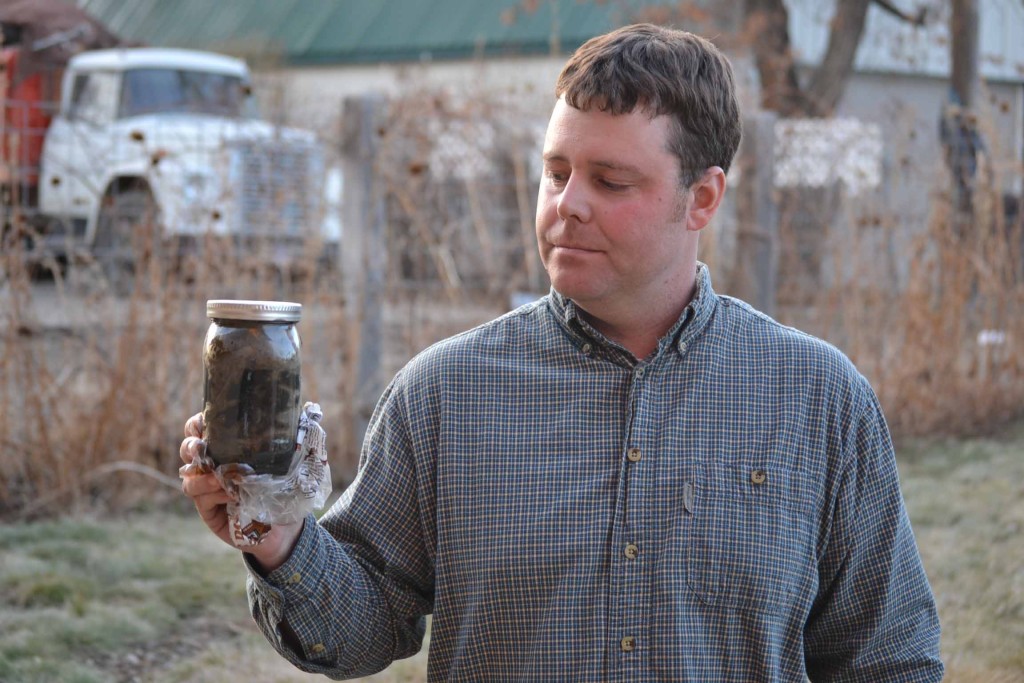Many of the waste byproducts produced during oil and gas extraction are radioactive. They contain varying concentrations of naturally occurring radioactive materials (NORM), or technologically enhanced naturally occurring radioactive materials (TENORM), which originate deep in the earth and can be mobilized upwards by the liquids involved in the hydraulic fracturing (fracking) process.
Such materials give off radiation, which can travel through air, water, and even some solid materials, and pose serious risks to both human and environmental health.
WORC’s latest report, No Time to Waste, reviews regulation of these waste materials in six states: Colorado, Idaho, Montana, North Dakota, South Dakota, and Wyoming. The report finds that state regulations around radioactive oil and gas wastes remain sparse, where they exist at all—meaning that state governments fail to protect citizens and the environment from the associated risks of radioactivity.
Seth Newton, a Glendive, Montana rancher, knows this firsthand. He lives just downstream of Montana’s first oilfield waste facility, Oaks Disposal.
“Oaks is full of alarming shortcomings,” he said.
The facility was sited just a half mile from Deer Creek—the stream that Seth uses to irrigate his ranch—and was designed to weather a 25-year storm event.
“Any larger storm,” he said, “could cause radioactive waste to leach into the creek.”
Seth’s family has ranched on the same plot of land for decades. He’s baffled by the fact that the Montana Department of Environmental Quality (DEQ), the agency that runs the permitting process for waste facilities in the state, would allow that legacy to be jeopardized.
In 1978, his family weathered a historic flood in the exact place where Oaks is located, and Seth worries daily about the possibility of another such flood taking place. If that were to happen, he says, it “would wash the facility out,” and send radioactive waste straight into Deer Creek. “Then my operation’s just done.”
A potential flood event isn’t Seth’s only concern. He sees truck traffic moving in and out of the facility daily, and regularly observes waste spills from over the tops of those trucks, as they take rural roads too quickly and aggressively. Once, as Seth drove past a truck, some waste was even splashed straight onto the windshield of his pickup.
Seth has been a fierce advocate on this issue, working to bring what’s happening to his community in Glendive to the attention of local officials, DEQ regulators, state legislators, and anyone he can find.
“I’m just amazed at how the politicians up there don’t think that clean water is a priority,” he said. “I just don’t understand it. My family’s livelihood depends on this stream, these aquifers, and the health of this land, and the poorly managed siting, design, and construction of this facility puts all that at risk.”
Seth is just one of many Westerners facing the impacts of radioactive oil and gas waste. The report calls for both federal rules on this waste stream and stronger state standards to prevent people like Seth and his family from being put at risk.
Read the report for the full list of policy findings and recommendations.
Read more oil and gas stories here.
Read more:
Colorado Oil and Gas Activists Hopeful, Despite Ballot Defeat
Fracking Cover-Up Continues Groundwater Contamination Disaster in Pavillion, Wyoming
WORC Files Injunction to Stop Secret Royalty Policy Committee Meetings


